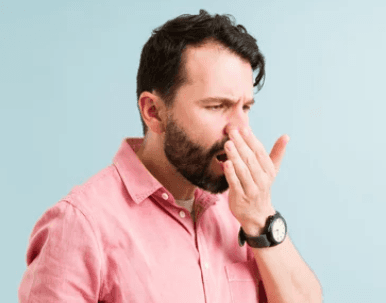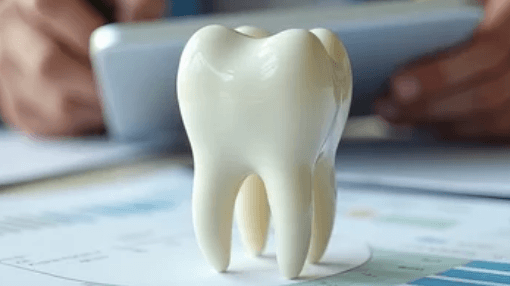
Bad Breath (Halitosis)
Bad breath, medically known as halitosis, affects millions of people worldwide. As dental professionals, we regularly encounter patients seeking solutions for this common but distressing condition. In this comprehensive guide, we'll explore the root causes of bad breath and provide evidence-based strategies for prevention and treatment.
Understanding Bad Breath: The Science Behind the Smell
Bad breath primarily occurs when bacteria in your mouth break down food particles and proteins, releasing volatile sulfur compounds (VSCs). These compounds create the characteristic unpleasant odour associated with halitosis. While occasional bad breath is normal, persistent halitosis may indicate underlying health issues requiring professional attention.
Primary Causes of Bad Breath
1. Poor Oral Hygiene
Poor dental care remains the leading cause of chronic bad breath. When food debris remains in your mouth, bacteria multiply rapidly, leading to:
Plaque accumulation on teeth and gums
Bacterial growth on the tongue's surface
Gum disease development
Tooth decay
2. Medical Conditions
Several health conditions can contribute to halitosis:
Chronic sinusitis and post-nasal drip
Gastrointestinal disorders
Diabetes
Liver or kidney problems
Respiratory tract infections
3. Dietary Factors
Your food choices significantly impact breath odour:
Sulfur-containing foods (garlic, onions)
High-protein diets
Ketogenic diets
Coffee and alcohol consumption
Professional Prevention Strategies
Maintaining Optimal Oral Health
Implementing these dental hygiene practices is crucial:
- Brush teeth thoroughly twice daily using fluoride toothpaste
- Floss at least once daily to remove interdental plaque
- Clean your tongue using a proper tongue scraper
- Use an alcohol-free antimicrobial mouthwash
- Schedule professional dental cleanings every six months
Lifestyle Modifications
Consider these lifestyle changes to improve breath freshness:
- Stay well-hydrated by drinking plenty of water
- Quit smoking and avoid tobacco products
- Maintain a balanced diet rich in fruits and vegetables
- Chew sugar-free gum containing xylitol after meals
When to Seek Professional Dental Care
Visit your dentist if you experience:
Persistent bad breath despite good oral hygiene
Bleeding or swollen gums
Dry mouth symptoms
White coating on the tongue
Chronic bad taste in your mouth
Treatment Options
Professional Dental Treatments
Your dentist may recommend:
- Deep professional cleaning
- Treatment for gum disease
- Repair of faulty dental work
- Customized oral hygiene plans
Medical Interventions
Some cases require:
Prescription medications for underlying conditions
Specialized mouth rinses
Treatment for dry mouth
Referral to medical specialists if necessary
Prevention Tips from Dental Experts
Maintain consistent oral hygiene practices
Use proper brushing techniques
Replace your toothbrush every 3-4 months
Stay hydrated throughout the day
Address dental issues promptly
Monitor your diet and eating habits
Frequently Asked Questions
Q: Can certain medications cause bad breath?
Yes, medications that cause dry mouth can lead to bad breath by reducing saliva production.
Q: Is morning breath normal?
Yes, morning breath is common due to decreased saliva production during sleep.
Q: How effective are over-the-counter breath fresheners?
While they provide temporary relief, they don't address underlying causes of bad breath.
Conclusion
Bad breath is a manageable condition with proper dental care and lifestyle modifications. Regular dental check-ups, good oral hygiene, and addressing underlying health issues are key to maintaining fresh breath. If you're concerned about persistent bad breath, schedule a consultation with your dental professional for personalized treatment options with Aberdeen Dentist Albany WA 6330.
Aberdeen Dental - Pioneering Excellence in Dental Care in Albany.




